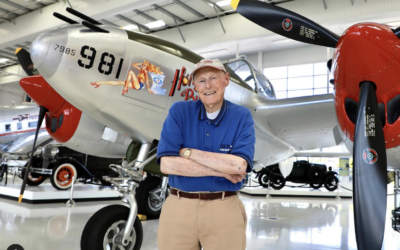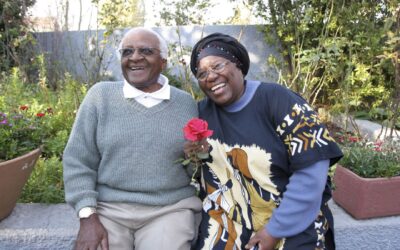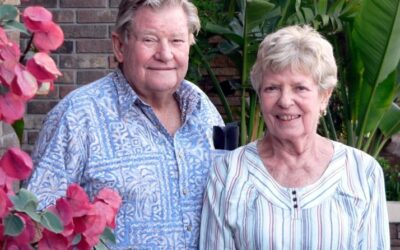Nearing 90 by William Maxwell
Out of the corner of my eye I see my 90th birthday approaching. It is one year and six months away. How long after that will I be the person I am now? I don’t yet need a cane but I have a feeling that my table manners have deteriorated. My posture is what you’d expect of someone addicted to sitting in front of a typewriter, but it was always that way. ”Stand up straight,” my father would say. ”You’re all bent over like an old man.” It didn’t bother me then and it doesn’t now, though I agree that an erect carriage is a pleasure to see, in someone of any age. I have regrets but there are not very many of them and, fortunately, I forget what they are. I forget names too, but it is not yet serious. What I am trying to remember and can’t, quite often my wife will remember. And vice versa. She is in and out during the day but I know she will be home when evening comes, and so I am never lonely. Long ago, a neighbor in the country, looking at our flower garden, said, ”Children and roses reflect their care.” This is true of the very old as well.
Because I actively enjoy sleeping, dreams, the unexplainable dialogues that take place in my head as I am drifting off, all that, I tell myself that lying down to an afternoon nap that goes on and on through eternity is not something to be concerned about. What spoils this pleasant fancy is the recollection that when people are dead they don’t read books. This I find unbearable. No Tolstoy, no Chekhov, no Elizabeth Bowen, no Keats, no Rilke. One might as well be — I am not — I think I am not — afraid of dying. When I was 17 I worked on a farm in southern Wisconsin, near Portage. It was no ordinary farm and not much serious farming was done there, but it had the look of a place that had been lived in, and loved, for a good long time. The farm had come down in that family through several generations, to a woman who was so alive that everything and everybody seemed to revolve around her personality. She lived well into her 90’s and then one day told her oldest daughter that she didn’t want to live anymore, that she was tired. This remark reconciled me to my own inevitable extinction. I could believe that enough is enough.
Before I am ready to call it quits I would like to reread every book I have ever deeply enjoyed, beginning with Jane Austen and going through shelf after shelf of the bookcases, until I arrive at the ”Autobiographies” of William Butler Yeats. As it is, I read a great deal of the time. I am harder to please, though. I see flaws in masterpieces. Conrad indulging in rhetoric when he would do better to get on with it. I would read all day long and well into the night if there were no other claims on my time. Appointments with doctors, with the dentist. The monthly bank statement. Income tax returns. And because I don’t want to turn into a monster, people. Afternoon tea with X, dinner with the Y’s. Our social life would be a good deal more active than it is if more than half of those I care about hadn’t passed over to the other side. I did not wholly escape the amnesia that overtakes children around the age of 6 but I carried along with me more of my childhood than, I think, most people do. Once, after dinner, my father hitched up the horse and took my mother and me for a sleigh ride. The winter stars were very bright. The sleigh bells made a lovely sound. I was bundled up to the nose, between my father and mother, where nothing, not even the cold, could get at me. The very perfection of happiness.
At something like the same age, I went for a ride, again with my father and mother, on a riverboat at Havana, Ill. It was a side-wheeler and the decks were screened, I suppose as protection against the mosquitoes. Across eight decades the name of the steamboat comes back to me — the Eastland — bringing with it the context of disaster. A year later, at the dock in Chicago, too many of the passengers crowded on one side, waving goodbye, and it rolled over and sank. Trapped by the screens everywhere, a great many people lost their lives. The fact that I had been on this very steamboat, that I had escaped from a watery grave, I continued to remember all through my childhood. I have liked remembering almost as much as I have liked living. But now it is different, I have to be careful. I can ruin a night’s sleep by suddenly, in the dark, thinking about some particular time in my life. Before I can stop myself it is as if I had driven a mine shaft down through layers and layers of the past and must explore, relive, remember, reconsider, until daylight delivers me.
I have not forgotten the pleasure, when our children were very young, of hoisting them onto my shoulders when their legs gave out. Of reading to them at bedtime. Of studying their beautiful faces. But that was more than 30 years ago. I admire the way that, as adults, they have taken hold of life, and I am glad that they are not materialistic, but there is little or nothing I can do for them at this point, except write a little fable to put in their Christmas stocking. ”Are you writing?” people ask — out of politeness, undoubtedly. And I say, ”Nothing very much.” The truth but not the whole truth — which is that I seem to have lost touch with the place that stories and novels come from. I have no idea why. I still like making sentences. Every now and then, in my waking moments, and especially when I am in the country, I stand and look hard at everything. ”I have regrets but there are not many of them and, fortunately, I forget what they are.”











0 Comments